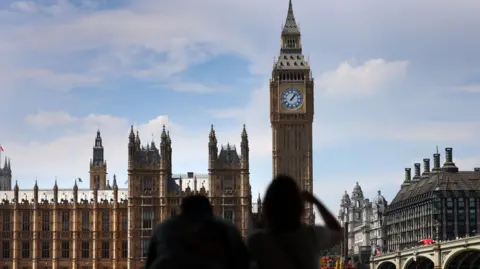On July 1, 2025, Members of Parliament (MPs) in the UK made decisions that significantly impacted the welfare system through changes in the criteria for various benefits. The debate leading to these changes was not only intense but also marked by significant internal dissent within the Labour party. After extensive discussions, it was revealed that 49 Labour MPs cast their votes against the government’s proposed welfare bill, voicing opposition to the reforms being pushed forward.
Despite the substantial number of rebel votes from within Labour, the government managed to secure the bill’s passage in the House of Commons with a majority of 75, achieving a final tally of 335 votes in favor to 260 against. This decisive outcome highlights the complexity of party politics, especially in matters that affect vulnerable populations. The bill’s content and its implications raised concerns among several Labour MPs, prompting them to break party lines in what has been termed a rebellion against the government of the day.
The results of this parliamentary process raise an important question for constituents: how did your local MP vote? The voting records provide insights into individual positions regarding welfare reform and can indicate which MPs are aligned with their constituents’ interests versus party directives. Gathering this information is critical for voters who wish to hold their representatives accountable for their decisions and actions.
As the legislation progresses, it will enter the committee stage, which allows for further examination and amendments before it is put to a final vote, known as the third reading. This phase signifies the rigorous processes that bills must undergo before becoming law, providing an avenue for scrutiny and the potential for alterations that can affect the final implementation of the welfare reforms.
The passage of this welfare bill signifies a pivotal moment in the political landscape of the UK, particularly for those who rely on benefits like Universal Credit and Personal Independence Payment (PIP). The implications of such changes in the welfare state resonate deeply across communities, impacting not only beneficiaries but also wider societal views on government responsibility toward citizens facing economic hardship.
There have been several related discussions in recent weeks that reflect on broader issues within the welfare framework. These discussions have included debates on the rollout of benefit changes, questions surrounding the rise in disability claims, and how current policies cater to the needs of the population. The Labour party, particularly faced with pressure from its members and external critics, must navigate these complex discussions and adapt its approach to align more closely with public sentiment.
In conclusion, the recent vote on the welfare bill has provided a rich context for understanding the dynamics of UK politics. It underscores the importance of parliamentary representation and accountability while also illustrating the ideological divides that can emerge within political parties. As MPs now prepare for further stages of this bill, the conversation around welfare and its effective reform continues, serving as a critical barometer for the government’s priorities and the public’s demands. For those keen on following these developments, subscribing to political analysis publications, such as the Politics Essential newsletter, can yield valuable insights into the ongoing debates unfolding in Westminster and beyond.











